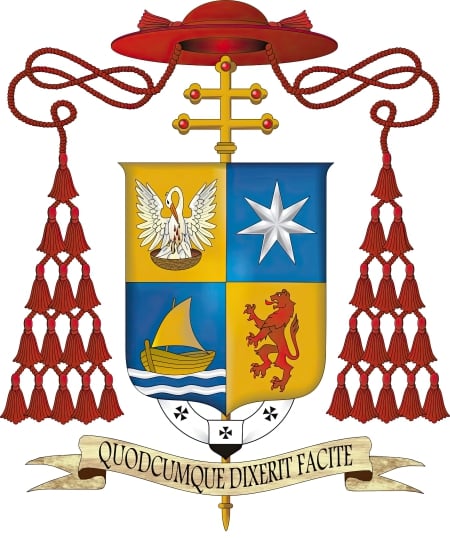
Frank Cardinal Leo's Message for Canada Day

Message for Canada Day 2025
1 July 2025
His Eminence Frank Cardinal Leo
Metropolitan Archbishop of Toronto
Dear Brothers and Sisters,
May Jesus and Mary be in your soul.
I am writing to you on the occasion of Canada Day. As Pilgrims of Hope celebrating our nation during this Holy Year of Jubilee, we discern the grace of God in our midst, reflect on what kind of society we are building, and critically examine what it means to live as both believers and citizens. As always, we are guided by Our Lord’s words, “Your kingdom come. Your will be done, on earth as it is in heaven” (Mt 6:10).
Hope is one of the few virtues that straddles and transcends both sacred and secular circles. It is a virtue that is infused into our hearts, and whether we recognize its divine origin or its eternal destination, hope abides in the depths of our being, and bids us to move forward. When we refer to hope, there is no denying that we use it in a particularly Christian manner, and yet the Christian understanding of hope also speaks to a broader human yearning. “The virtue of hope responds to the aspiration to happiness which God has placed in the heart of every man; it takes up the hope that inspire men’s activities and purifies them so as to order them to the kingdom of heaven” (CCC, 1818).
Canada Day provides us with the opportunity to reflect on our nation's soul. How does hope, and more broadly faith-based virtues, inform civic engagement? What does it mean to love one’s neighbour, not just as an individual, but as a fellow citizen? What might it look like for a nation to embody hope – not just in optimism for economic growth, but in her treatment of the most vulnerable, in her commitment to truth, and in her embrace of religious and spiritual values in all its diverse forms and expressions? (cf. Spes non Confundit, 7-15). These questions invite both believers and non-believers to enter into dialogue in a very real way. It is important that as a nation we critically examine and properly discern the present, so that we can appropriately set a course for the future (Mt 16:2-3; Lk 12:54-56).
Twinned with hope, as a catalyst for living a virtuous life, we also consider patriotism understood as a love for one’s country expanding into genuine concern for the well-being of its citizens and a sense of personal identification. The Catechism of the Catholic Church expounds on this notion in its treatment of the fourth commandment “Honour your father and mother” (#2197-2257) and especially in “Participation in Social Life” (#1897-1927). What is necessarily linked to the manner we live out our faith day to day is how we see ourselves as part of a larger human community made up of many different persons, values and customs. In this vein, the Catechism states (CCC 2239), “The love and service of one’s country follow from the duty of gratitude and belong to the order of charity.” Patriotism is the communitarian vehicle that allows us to engage in the virtue of charity as it pertains to the social sphere, assuming not only our civic responsibilities, but as followers of the Risen Christ, to go the extra mile, to serve with generosity, to be salt and light to all.
In a time when we fear the growing instances of world conflicts and the destructiveness of war and war-like attitudes, it would be of great benefit if we were to reflect on the prophetic words of Pope Leo XII from his encyclical Sapientiae Christianae: “To love both countries, that of earth below and that of heaven above, yet in such a mode that the love of our heavenly surpass the love of our earthly home, and that human laws be never set above the divine law, is the essential duty of Christians.” There is a difference, there is a hierarchy of loves. How awful it would be if we mistook an idealistic utopianism for the Kingdom of God in this world. When Our Lord stood before Pilate, he said (John 18:36), “My kingship is not of this world; if my kingship were of this world, my servants would fight.” Furthermore, he tells Pilate (John 19:11), “You would have no power over me unless it had been given you from above.”
The good news is, however, that when public discourse seeks out authentic mechanisms of peace, justice, human dignity and the common good for its citizens, it is not far from discovering and participating in the love of God (LG, 8). It is the love of God that ultimately unites believers and non-believers. Our unity is rooted in the objective reality of God’s love, not the subjective sentiments of personal agreement or public opinion (cf. Gaudium et Spes, 76).
Our national anthem inspires us: “God keep our land glorious and free.” The glory we seek, however, must first be that of God himself, and we glorify God by living in truth, generosity, charity and integrity – virtues that free us from ideologies and vice and guarantee a right ordering of all dimensions in our soul, our life and our living in a country that we pray will be blessed by the Lord. Happy Canada Day.
St. Joseph, patron saint of Canada, pray for us.
